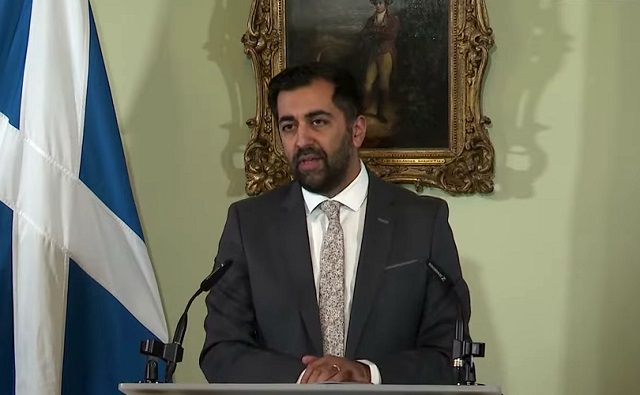Business
The CRTC said it would leave podcasts alone. Turns out that was a myth

From the MacDonald-Laurier Institute
This article originally appeared in the Hub.
By Peter Menzies, October 4, 2023
It’s clear the regulator is about to draw podcasts into its warm embrace.
The CRTC has backtracked on its promise to leave podcasts alone.
On May 12, the federal regulator stated in its “Myths and Facts” release that concerns it would regulate content such as podcasts were a “myth” and the “fact” of the matter was that “a person who creates audio or video content or creates a podcast, is not a broadcaster under” the Online Streaming Act (Bill C-11).
That “fact” didn’t live long. It expired September 29 when, in its first decisions since being granted authority over the internet, the CRTC changed lanes.
While it was careful to state that podcasters themselves don’t have to register with the Commission, the web-based platforms that make podcasts available must do so. Indeed, podcasters may not be broadcasters, but very much as predicted by the legislation’s critics, the CRTC has found ways to bring them into scope anyway.
It decided that podcasts constitute “programs under the Broadcasting Act, given that they are comprised of sounds intended to inform, enlighten or entertain.”
The regulator’s decision further explains that while podcasters may not be broadcasters, the transmission of podcasts over the internet most definitely “constitutes broadcasting” which makes those entities that platform podcasts into cable companies.
So while the CRTC concedes that while “the Broadcasting Act does not give the Commission a mandate to regulate creators of programs” it nevertheless makes clear that its powers do cover “those services that are involved in the broadcasting of programs, which are referred to as broadcasting undertakings.”
Is your head spinning yet?
The legal contortions continue throughout the decision, but the clear takeaway, the bottom line, is that, while it keeps insisting it doesn’t intend to regulate the content of podcasts, it is very concerned about the content of podcasts and if it can’t legally regulate them, it’ll make sure someone else does it for them.
Paragraph 223 of its decision makes it clear the CRTC is about to draw podcasts into its warm embrace.
Without information about online undertakings that transmit or retransmit podcasts, it would be more difficult for the Commission to ensure the achievement of the objectives of … the Broadcasting Act, which relate to, among other things, providing a reasonable opportunity for the public to be exposed to the expression of differing views on matters of public concern, and (that) the programming provided by the Canadian broadcasting system should be varied and comprehensive, providing a balance of information, enlightenment and entertainment for people of all ages, interests and tastes.
In other words, what the CRTC denounced as “myth” in the spring has become a “fact” in the fall. It has kicked open the door to the regulation of online content, if not directly then by proxy through the platforms that deliver the work of podcasters to their audiences.
It is a bureaucratic master stroke.
Here’s what will follow.
The list of intervenors presenting at the CRTC’s public hearing coming up in late November indicates the panel of commissioners will hear from a number of groups that will explain the extent to which they are under-represented and funded. So, a possible outcome of this will be that services that carry podcasts will have to fund podcasters who, on their own, haven’t been able to find an audience.
Just as likely is that platforms will be regulated to ensure podcasts designated by the CRTC are given priority visibility/discoverability online over undesignated podcasts through the manipulation of algorithms. These are likely to be podcasts by Indigenous, BIPOC and LGBTQ2S creators.
As erstwhile CRTC Chair Ian Scott told the Senate committee studying Bill C-11 in 2022:
Instead of saying, and the Act precludes this, we will make changes to your algorithms as many European countries are contemplating doing, instead, we will say this is the outcome we want. We want Canadians to find Canadian music. How best to do it? How will you do it? I don’t want to manipulate your algorithm. I want you to manipulate it to produce a particular outcome. And then we will have hearings to decide what are the best ways and explore it.
This was reinforced in an exchange Scott had with Senator Pamela Wallin, who suggested proponents of the bill were parsing their words and that:
You won’t manipulate the algorithms; you will make the platforms do it. That is regulation by another name. You’re regulating either directly and explicitly or indirectly, but you are regulating content.
To which Mr. Scott replied: “you’re right.”
The CRTC has now confirmed what it denied mere months ago when it was parroting then-Heritage Minister Pablo Rodriguez’s talking points.
It will make sure podcasts and any other internet content it can capture is regulated.
Peter Menzies is a Senior Fellow with the Macdonald-Laurier Institute, a former newspaper executive, and past vice chair of the CRTC.
Business
Ottawa should end war on plastics for sake of the environment
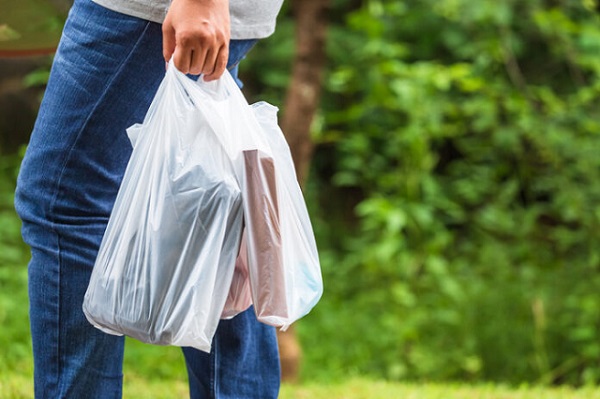
From the Fraser Institute
Here’s the shocker: Meng shows that for 15 out of the 16 uses, plastic products incur fewer GHG emissions than their alternatives…
For example, when you swap plastic grocery bags for paper, you get 80 per cent higher GHG emissions. Substituting plastic furniture for wood—50 per cent higher GHG emissions. Substitute plastic-based carpeting with wool—80 per cent higher GHG emissions.
It’s been known for years that efforts to ban plastic products—and encourage people to use alternatives such as paper, metal or glass—can backfire. By banning plastic waste and plastic products, governments lead consumers to switch to substitutes, but those substitutes, mainly bulkier and heavier paper-based products, mean more waste to manage.
Now a new study by Fanran Meng of the University of Sheffield drives the point home—plastic substitutes are not inherently better for the environment. Meng uses comprehensive life-cycle analysis to understand how plastic substitutes increase or decrease greenhouse gas (GHG) emissions by assessing the GHG emissions of 16 uses of plastics in five major plastic-using sectors: packaging, building and construction, automotive, textiles and consumer durables. These plastics, according to Meng, account for about 90 per cent of global plastic volume.
Here’s the shocker: Meng shows that for 15 out of the 16 uses, plastic products incur fewer GHG emissions than their alternatives. Read that again. When considering 90 per cent of global plastic use, alternatives to plastic lead to greater GHG emissions than the plastic products they displace. For example, when you swap plastic grocery bags for paper, you get 80 per cent higher GHG emissions. Substituting plastic furniture for wood—50 per cent higher GHG emissions. Substitute plastic-based carpeting with wool—80 per cent higher GHG emissions.
A few substitutions were GHG neutral, such as swapping plastic drinking cups and milk containers with paper alternatives. But overall, in the 13 uses where a plastic product has lower emissions than its non-plastic alternatives, the GHG emission impact is between 10 per cent and 90 per cent lower than the next-best alternatives.
Meng concludes that “Across most applications, simply switching from plastics to currently available non-plastic alternatives is not a viable solution for reducing GHG emissions. Therefore, care should be taken when formulating policies or interventions to reduce plastic demand that they result in the removal of the plastics from use rather than a switch to an alternative material” adding that “applying material substitution strategies to plastics never really makes sense.” Instead, Meng suggests that policies encouraging re-use of plastic products would more effectively reduce GHG emissions associated with plastics, which, globally, are responsible for 4.5 per cent of global emissions.
The Meng study should drive the last nail into the coffin of the war on plastics. This study shows that encouraging substitutes for plastic—a key element of the Trudeau government’s climate plan—will lead to higher GHG emissions than sticking with plastics, making it more difficult to achieve the government’s goal of making Canada a “net-zero” emitter of GHG by 2050.
Clearly, the Trudeau government should end its misguided campaign against plastic products, “single use” or otherwise. According to the evidence, plastic bans and substitution policies not only deprive Canadians of products they value (and in many cases, products that protect human health), they are bad for the environment and bad for the climate. The government should encourage Canadians to reuse their plastic products rather than replace them.
Author:
Business
ESG Puppeteers
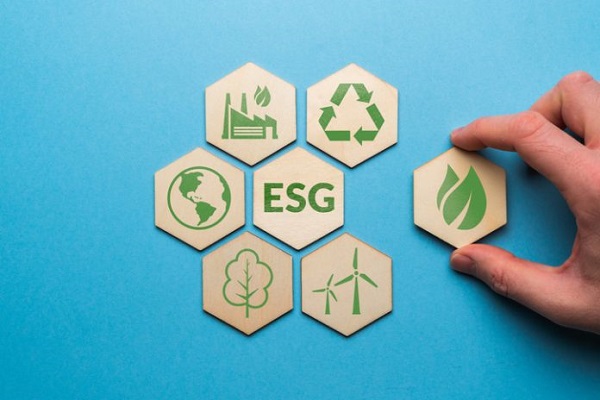
From Heartland Daily News
By Paul Mueller
The Environmental, Social, and Governance (ESG) framework allows a small group of corporate executives, financiers, government officials, and other elites, the ESG “puppeteers,” to force everyone to serve their interests. The policies they want to impose on society — renewable energy mandates, DEI programs, restricting emissions, or costly regulatory and compliance disclosures — increase everyone’s cost of living. But the puppeteers do not worry about that since they stand to gain financially from the “climate transition.”
Consider Mark Carney. After a successful career on Wall Street, he was a governor at two different central banks. Now he serves as the UN Special Envoy on Climate Action and Finance for the United Nations, which means it is his job to persuade, cajole, or bully large financial institutions to sign onto the net-zero agenda.
But Carney also has a position at one of the biggest investment firms pushing the energy transition agenda: Brookfield Asset Management. He has little reason to be concerned about the unintended consequences of his climate agenda, such as higher energy and food prices. Nor will he feel the burden his agenda imposes on hundreds of millions of people around the world.
And he is certainly not the only one. Al Gore, John Kerry, Klaus Schwab, Larry Fink, and thousands of other leaders on ESG and climate activism will weather higher prices just fine. There would be little to object to if these folks merely invested their own resources, and the resources of voluntary investors, in their climate agenda projects. But instead, they use other people’s resources, usually without their knowledge or consent, to advance their personal goals.
Even worse, they regularly use government coercion to push their agenda, which — incidentally? — redounds to their economic benefit. Brookfield Asset Management, where Mark Carney runs his own $5 billion climate fund, invests in renewable energy and climate transition projects, the demand for which is largely driven by government mandates.
For example, the National Conference of State Legislatures has long advocated “Renewable Portfolio Standards” that require state utilities to generate a certain percentage of electricity from renewable sources. The Clean Energy States Alliance tracks which states have committed to moving to 100 percent renewable energy, currently 23 states, the District of Columbia, and Puerto Rico. And then there are thousands of “State Incentives for Renewables and Efficiency.”
Behemoth hedge fund and asset manager BlackRock announced that it is acquiring a large infrastructure company, as a chance to participate in climate transition and benefit its clients financially. BlackRock leadership expects government-fueled demand for their projects, and billions of taxpayer dollars to fund the infrastructure necessary for the “climate transition.”
CEO Larry Fink has admitted, “We believe the expansion of both physical and digital infrastructure will continue to accelerate, as governments prioritize self-sufficiency and security through increased domestic industrial capacity, energy independence, and onshoring or near-shoring of critical sectors. Policymakers are only just beginning to implement once-in-a-generation financial incentives for new infrastructure technologies and projects.” [Emphasis added.]
Carney, Fink, and other climate financiers are not capitalists. They are corporatists who think the government should direct private industry. They want to work with government officials to benefit themselves and hamstring their competition. Capitalists engage in private voluntary association and exchange. They compete with other capitalists in the marketplace for consumer dollars. Success or failure falls squarely on their shoulders and the shoulders of their investors. They are subject to the desires of consumers and are rewarded for making their customers’ lives better.
Corporatists, on the other hand, are like puppeteers. Their donations influence government officials, and, in return, their funding comes out of coerced tax dollars, not voluntary exchange. Their success arises not from improving customers’ lives, but from manipulating the system. They put on a show of creating value rather than really creating value for people. In corporatism, the “public” goals of corporations matter more than the wellbeing of citizens.
But the corporatist ESG advocates are facing serious backlash too. The Texas Permanent School Fund withdrew $8.5 billion from Blackrock last week. They join almost a dozen state pensions that have withdrawn money from Blackrock management over the past few years. And last week Alabama passed legislation defunding public DEI programs. They follow in the footsteps of Florida, Texas, North Carolina, Utah, Tennessee, and others.
State attorneys general have been applying significant pressure on companies that signed on to the “net zero” pledges championed by Carney, Fink, and other ESG advocates. JPMorgan and State Street both withdrew from Climate Action 100+ in February. Major insurance companies started withdrawing from the Net-Zero Insurance Alliance in 2023.
Still, most Americans either don’t know much about ESG and its potential negative consequences on their lives or, worse, actually favour letting ESG distort the market. This must change. It’s time the ESG puppeteers found out that the “puppets” have ideas, goals, and plans of their own. Investors, taxpayers, and voters should not be manipulated and used to climate activists’ ends.
They must keep pulling back on the strings or, better yet, cut them altogether.
Paul Mueller is a Senior Research Fellow at the American Institute for Economic Research. He received his PhD in economics from George Mason University. Previously, Dr. Mueller taught at The King’s College in New York City.
Originally posted at the American Institute for Economic Research, reposted with permission.
-

 Alberta2 days ago
Alberta2 days agoPharmacist-led clinics improve access to health care: Lessons from Alberta
-
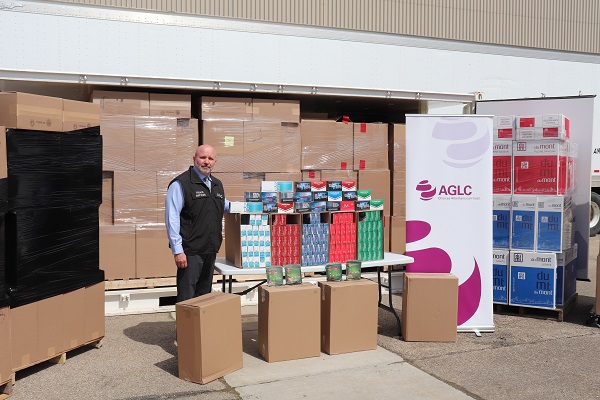
 Alberta1 day ago
Alberta1 day ago30 million contraband cigarettes valued at $25 million dollars seized in Alberta
-

 COVID-1912 hours ago
COVID-1912 hours agoCOVID Lab Leak: Over four later, EcoHealth Alliance funding is finally suspended
-
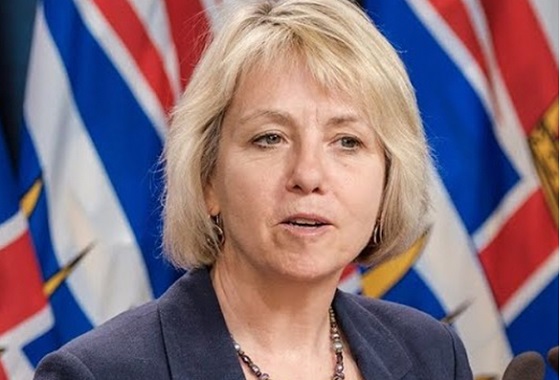
 COVID-191 day ago
COVID-191 day agoHealthcare workers obtain partial win against Bonnie Henry in BC Supreme Court
-

 COVID-191 day ago
COVID-191 day agoElon Musk-backed doctor critical of COVID response vows appeal after court sides with medical board
-

 COVID-192 days ago
COVID-192 days agoJapan’s most senior cancer doctor: COVID shots are ‘essentially murder’
-

 Health1 day ago
Health1 day agoSouth Korean president declares low birth rate a ‘national emergency,’ plans new ministry to address it
-

 Frontier Centre for Public Policy2 days ago
Frontier Centre for Public Policy2 days agoThe Toppling of the woke authoritarians




